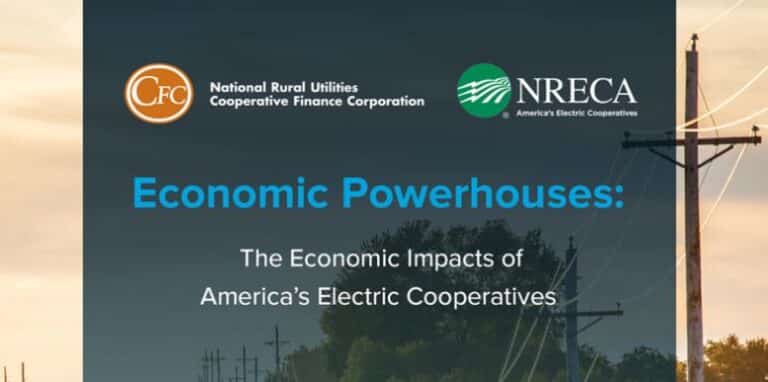A new report that analyzes economic data from 2018 through 2022 at the national, state and local levels, shows electric cooperatives created more than $1.1 trillion in total sales output and contributed $554 billion to U.S. gross domestic product. Cooperatives also provided nearly 623,000 jobs annually and $257 billion in labor income over the five-year period.
At the local level, the report found electric cooperatives are responsible for $791 billion of total output and $374 billion in value added to the communities they serve. This activity accounts for nearly 424,000 jobs each year, leading to $166 billion in labor income for local communities.
During the same period, electric distribution and generation and transmission cooperatives invested nearly $409 billion across the U.S., including $75 billion in capital expenditures, $304 billion in operational expenditures, $24 billion toward maintenance activities and $7 billion in retired capital credits.
“We’re seeing electric cooperatives expand their community investments and foster opportunities beyond traditional poles and wires—from creating business incubators to building broadband networks and attracting new employers,” CFC CEO Andrew Don said. “These endeavors are further advancing the billion-dollar economic impact of electric cooperatives locally and nationally.”
The report, “Economic Powerhouses: The Economic Impacts of America’s Electric Cooperatives,” was put together on behalf of CFC and NRECA by Strategen Consulting, an energy strategy professional services firm. It details the economic impacts of a range of activities conducted by cooperatives, through the generation, transmission and distribution of electricity, as well as capital investments, additional operations and maintenance expenses and the disbursement of excess operating revenue returned to cooperative members as capital credits.
“This report quantifies what many American families and businesses know well—electric cooperatives are powerful engines of economic development in their local communities,” NRECA CEO Jim Matheson said. “Affordable and reliable electricity is a key ingredient for a successful economy. Electric co-ops are focused on the long-term success of local communities as they keep the lights on and power economic growth.”





